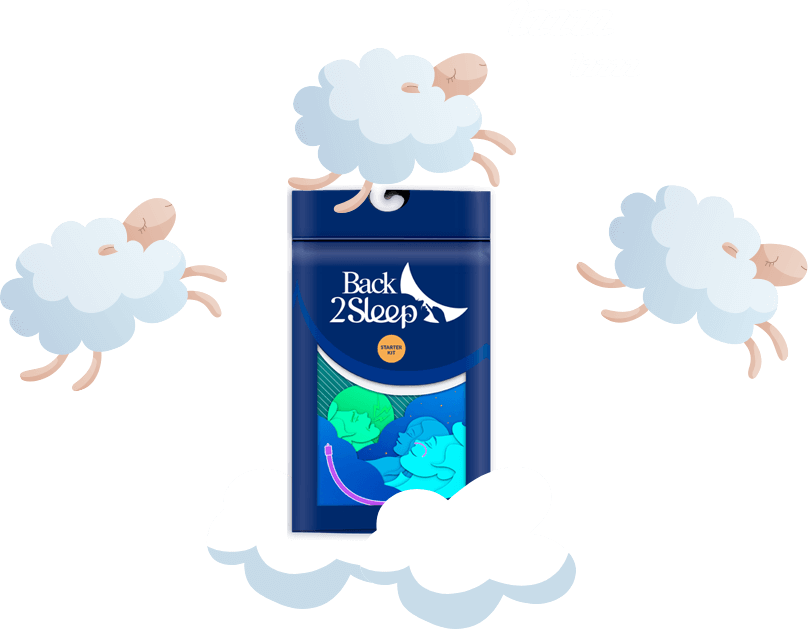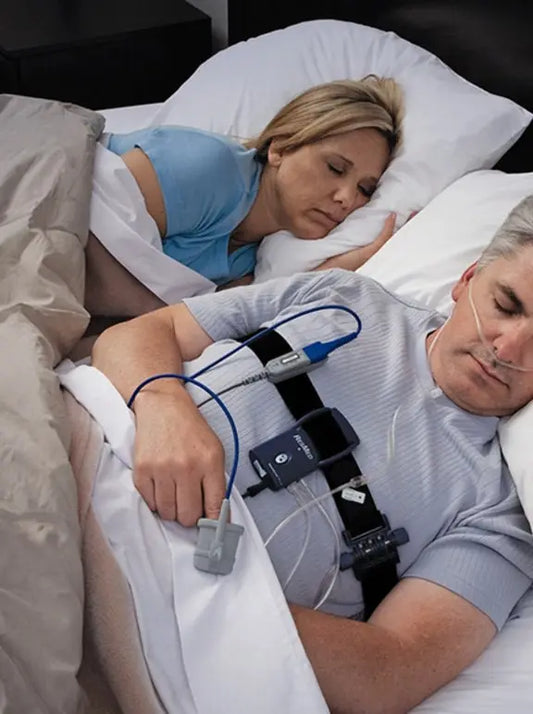Snoring is much more than just a night-time noise that annoys those around you. This is a common respiratory phenomenon during sleep, marked by relaxation of the jaw and pharynx muscles . This relaxation induces a narrowing of the airways, generating sound vibrations every time air passes through these reduced passages.
Although often benign, snoring can sometimes be the harbinger of a more severe disorder: sleep apnea sleep apnea. The latter is characterized by frequent nocturnal respiratory arrests, leading to reduced sleep quality and possible repercussions on cardiovascular health. For snorers and their partners, understanding the mechanics and potential consequences of snoring is key to finding effective solutions and improving sleep quality.
The mechanisms of snoring explained
Snoring occurs when airflow is partially obstructed during sleep, causing vibration of the soft tissues at the back of the throat, notably the soft palate and uvula. This phenomenon can be influenced by various anatomical and functional factors.
The upper respiratory tract plays a central role in this process. Reduced muscle tone during the night can lead to narrowing of the airways, increasing the speed of inspired air and accentuating tissue vibration.
Nasal obstructions, whether due to allergies, a deviated septum or enlarged vegetations, can force the person to breathe through the mouth, exacerbating snoring. In addition, sleep-disordered breathing, such as obstructive apnea, is closely linked to snoring and can have significant repercussions on cardiovascular health.
Anti-snoring solutions ranging from back2Sleep intranasal orthoses to continuous positive airway pressure (CPAP) devices, aim to keep the airways open, reducing vibrations and improving sleep quality.

Why do we snore more as we age?
With age, airway structures undergo anatomical and functional changes that can aggravate snoring. Muscle tone, particularly in the pharynx, decreases, leading to soft tissue collapse and narrowing of the air passage. What's more, the accumulation of fatty tissue around the neck puts additional pressure on the airways, exacerbating obstruction.
These changes, combined with an increased prevalence of sleep disorders such as obstructive sleep apnea (OSA), explain why snoring is often more frequent and severe in the elderly. Awareness of these changes and the adoption of preventive measures, such as a healthy lifestyle and monitoring of sleep-disordered breathing, are essential to maintaining restful sleep as we age.
The role of weight in snoring
Overweight and obesity are determining factors in the onset and intensification of snoring.
Excess weight, particularly around the neck, puts pressure on the upper airways, reducing their diameter and increasing the risk of obstruction during sleep. What's more, visceral fat can impact breathing by reducing thoracic compliance, making inspiration more laborious.
Overweight people are also more likely to suffer from obstructive sleep apnea syndrome, a serious condition where pauses in breathing occur during the night, disrupting sleep. Adopting a weight loss strategy can be an effective anti-snoring treatment, reducing pressure on the airways and improving sleep quality.
When does snoring become a health problem?
Although quite common, snoring can sometimes mask more serious disorders such as sleep apnea syndrome. It becomes a cause for concern when it is chronic, strong and accompanied by symptoms such as daytime sleepiness, morning headaches, or frequent awakenings during the night. These signs may indicate a disturbance in sleep quality, or even airway obstruction.
The long-term consequences are not to be overlooked: high blood pressure, cardiovascular disease and heart rhythm disorders are often associated with severe, untreated snoring.
So it's crucial to consult a healthcare professional, such as an ENT specialist or a pulmonologist, when snoring becomes a regular problem that bothers the sleeper and those around him or her.

Snoring vs. sleep apnea
Snoring is often perceived as a minor inconvenience, but when it's constant and noisy, it can be a warning sign of sleep apnea, a serious sleep disorder.
Unlike classic snoring,sleep apnea is characterized by repeated breathing stops during the night, causing micro-awakenings and insufficient oxygenation. Snorers suffering from apnea may wake up stuffy or feel excessively sleepy during the day.
These symptoms should not be ignored, as sleep apnea can lead to severe complications such as cardiovascular disorders. A precise diagnosis, often established following a ventilatory polygraphy in a sleep laboratory, is essential to distinguish simple snoring from obstructive sleep apnea and determine the most appropriate anti-snoring treatment.
Long-term consequences of snoring
In the long term, chronic snoring can lead to sleep fragmentation, reducing the quality of deep sleep and impacting on general health. The consequences are not limited to daytime sleepiness but extend to more serious problems such as high blood pressure, cardiovascular disease and even type 2 diabetes.
What's more, snoring can cause emotional distress and increased irritability, affecting not only the person who snores but also their partner. Studies have also shown a link between snoring and long-term memory impairment. So it's imperative to adopt effective anti-snoring solutions and consult a specialist if snoring persists or is accompanied by worrying symptoms.
Treatments and solutions to reduce snoring
Snoring, often perceived as a trivial annoyance, can sometimes be a symptom of an underlying health problem. Fortunately, a multitude of treatments and solutions exist to reduce or eliminate snoring, ranging from simple remedies to more complex medical interventions.

Lifestyle changes to reduce snoring
Reducing snoring can often start with simple lifestyle changes. Firstly, weight management can play a crucial role, as weight gain, particularly around the neck, increases pressure on the airways. Secondly, avoiding alcohol consumption and smoking before bedtime can reduce the excessive relaxation of throat tissues that promotes snoring.
Sleeping on your side can also be beneficial, preventing the tongue and soft tissues from obstructing the airway. Exercises to strengthen jaw and throat muscles may also be recommended.
When is surgery an option?
Snoring surgery is usually considered when other treatments have failed and snoring is related to anatomical problems, such as enlarged tonsils or a relaxed soft palate.
Common procedures include uvulopalatopharyngoplasty (UPPP), which aims to remove excess tissue from the throat, or radiofrequency, a less invasive technique that uses thermal energy to tighten tissue.
A precise diagnosis, often made in a sleep center, is essential before considering surgery, as the causes of snoring vary widely from one person to another.
Surgery is generally not the first resort and is reserved for cases of severe snoring or snoring associated with disorders such as sleep apnea syndrome.

- Choosing a selection results in a full page refresh.
- Opens in a new window.







